“One day, the king realized that the gold and silver in his treasury was running low. He became distressed and asked his minister for advice. The minister said without hesitation, “We will impose a new tax.” The king nodded in agreement and instructed his minister to implement his suggestion. Tax collectors began touring cities and villages, accompanied by police officers, forcing people to pay the new tax. Those who refused to pay were humiliated, beaten, and imprisoned. One day, the people’s patience ran out, and their anger exploded. They marched in a huge crowd toward the royal palace, their voices rising loudly and indignantly at the injustice. When the king learned of what had happened, he allowed a delegation representing the demonstrators to meet with him. He listened attentively to the moving pamphlet the delegation members had to say about hunger, prisons, taxes, and the unjust minister. He expressed his astonishment and disapproval at what he heard, and said in a trembling, ashamed voice, “How can I ask my Lord on the Day of Judgment? Can I oppress my subjects without even knowing it? I, who dedicated my life to serving the needy, the poor, the orphans, and the widows?!” He stood up and announced in a stern voice the dismissal of the minister from his position and the confiscation of his palaces and wealth as punishment for his injustice and out of respect for the will of the people. The delegation left the royal palace and informed the disaffected people of what had happened. They shouted joyfully, thanking the king for his support of justice and righteousness. However, the next day, the tax collectors continued their tour of houses and shops.
With this vision, Zakaria Tamer’s text opens up to scenes in which characters dressed in symbolic garb freely express social and economic concerns and the setbacks associated with a political reality that has shattered the constraints that could have strained the conscience of the ruler, reminding him of his limits and warning him against the transgressions that are killing his people.
Tigers on the Tenth Day
د.ا5.00
A collection of symbolic stories that addresses oppression and freedom through a sarcastic style and intense language.
Available on backorder
| Categories: | Literature, stories, Literary criticism, satirical literature |
|---|---|
| Tags: | literature, politics, stories, thought |
| Author | |
|---|---|
| Year | |
| Publisher | Riyadh Al-Rayyes Books and Publishing |
You may also like…
-
Spring in Ashes
د.ا5.00In “Spring in Ashes,” Zakaria Tamer presents satirical short stories that reveal the contradictions of Arab reality and the cruelty of power.
-
I Saw in What the Sleeper Sees
د.ا9.00This book contains a collection of short dreams that blend reality and symbolism, reflecting his reflections on life, politics, and existence.
-
Sea Prayer
د.ا12.00Sea Prayer is a poignant and poetic reflection on the suffering of refugees, told as a letter from a Syrian father to his lost child.
-
The Nightingale’s Prayer
د.ا5.00The novel tells a story of revenge that turns into love, revealing a woman’s struggle with social injustice in a conservative rural environment.
Related products
-
Palestinian resistance literature under occupation
د.ا3.55Ghassan Kanafani is a Palestinian novelist, storyteller, and journalist, and is considered one of the most famous Arab writers and journalists in the twentieth century. His literary works, including novels and short stories, were deeply rooted in Arab and Palestinian culture
د.ا4.97 -
Umm Saad
د.ا2.13Ghassan Kanafani is a Palestinian novelist, storyteller, and journalist, and is considered one of the most famous Arab writers and journalists in the twentieth century. His literary works, including novels and short stories, were deeply rooted in Arab and Palestinian culture
د.ا3.55 -
The other thing
د.ا2.13Ghassan Kanafani is a Palestinian novelist, storyteller, and journalist, and is considered one of the most famous Arab writers and journalists in the twentieth century. His literary works, including novels and short stories, were deeply rooted in Arab and Palestinian culture
د.ا3.55 -
The Alchemist
د.ا4.97The Alchemist (Portuguese: O Alquimista) is a novel by Brazilian author Paulo Coelho which was first published in 1988. Originally written in Portuguese, it became a widely translated international bestseller. The story follows the shepherd boy Santiago in his journey across North Africa to the Egyptian pyramids after he dreams of finding treasure there.
د.ا7.10 -
Lover
د.ا2.13Ghassan Kanafani is a Palestinian novelist, storyteller, and journalist, and is considered one of the most famous Arab writers and journalists in the twentieth century. His literary works, including novels and short stories, were deeply rooted in Arab and Palestinian culture
د.ا3.55 -
Anichatin and relativity
د.ا2.13In this book, its author, Dr. Mustafa Mahmoud, tries in his style known as ease and extreme logic in understanding the theory of relativity of the physicist Albert Einstein so that it suits the understanding and perception of the general public, and in a strong objection to limiting information to a few scientists under the pretext of depth and specialization, which may lead to the isolation of science, supporting in his book what Einstein himself called for to spread science among people, Einstein hated scientific fortune-telling and fabrication of mystery, claim, and magnification, and he used to say that the truth Never mind.
د.ا4.26 -
Two years, eight months and twenty-eight nights
د.ا7.10A book that blends fiction and nonfiction to explore issues of religion, identity and human conflict
د.ا8.52 -
The Da Vinci Code
د.ا8.52- The Da Vinci Code is a 2003 mystery thriller novel by Dan Brown. It is Brown’s second novel to include the character Robert Langdon: the first was his 2000 novel Angels & Demons. The Da Vinci Code follows symbologist Langdon and cryptologist Sophie Neveu after a murder in the Louvre Museum in Paris entangles them in a dispute between the Priory of Sion and Opus Dei over the possibility of Jesus and Mary Magdalene having had a child together.
د.ا10.65


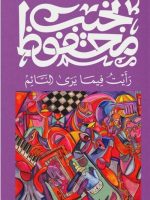
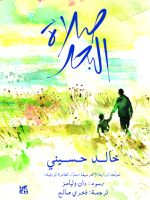




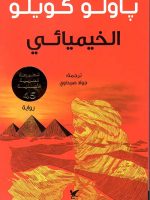

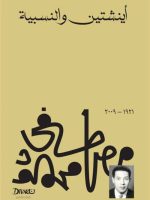
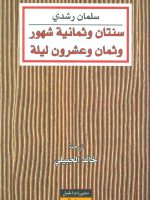

Be the first to review “Tigers on the Tenth Day”